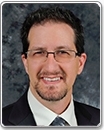
Practice Perfect 733
Successfully Interviewing Online Part 1: The Environment
Successfully Interviewing Online Part 1: The Environment

The time draws nigh! We are coming ever closer to this academic year’s residency interviews. But this year there’s a twist: CRISP! Instead of everyone traveling to Frisco, Texas and participating in the CRIP interviews, most residency programs will be participating in the CRISP (Centralized Regional Interview Scheduling Program). I congratulate our leadership for this sensible and organized change in response to the COVID-19 pandemic.
As a result, most of programs will interview online, and for those 4th year students participating this year, this means you have to very quickly adopt a new skill: the online interview. Yes, as if this year hasn’t been stressful enough, now you need to become expert online interviewees. Let’s take a look at some recommendations to help you succeed.
For today, let’s first look at the environment in which students will be interviewing. It’s helpful to consider the entire situation from the residencies’ perspective. Yes, you have to think about the residencies and not your perspective. They’re interviewing you, which means the onus is on the applicant to keep it together. It’s always helpful to understand your environment.
- The vast majority of podiatric residency programs have never done an online interview before. Thus, they’re going to be as inexperienced as you. The difference, though, is they’re not the ones looking for a residency!
- Even though CASPR is doing their best to create an organized scheduling system, there are likely to be unforeseen glitches. The same is true for the technology used to do the actual interviews. This means you have to be flexible and patient with the process. Don’t let the unforeseen throw your stride. In fact, some residency programs will be looking to see how you react to change and the unexpected (part of residency training under normal circumstances). Do you stay cool and composed despite organizational and technical challenges? The answer must be “yes” for you to be successful.
- It will be very difficult for programs that used to do physical activities during the interviews (such as suturing while answering questions) to continue these activities. This would require a lot of steps to make it happen, meaning they may have been more attentive to your hand skills during clerkships. Additionally, some programs might actually be more likely to choose from their clerks. No one will know if this is true until the match process is over.
- Online interviews will likely have a greater emphasis on knowledge and answering social questions. For those programs that already emphasized this aspect, rather than physical skills, this will mean not much will change for their content. This also means that despite a decreased number of clerkships during the past year due to the pandemic, programs will still have a high expectation that your knowledge base is strong.
- Be ready to answer this question: “What did you do when COVID hit, and you didn’t have clerkships?” It is expected from all programs that you did everything you could to increase your knowledge base by reading, studying, watching videos, and practicing physical skills such as hand tie suturing. Did you lay around playing video games? Were you lazy? Or did you take advantage of every limited opportunity you could? Did you learn a new skill? Take an online class? Take up a new hobby? For anything you did, you must be ready to show how that new knowledge or skill will make you a better resident.
- Similarly, there are a battery of other possible questions that could be asked about your experience with COVID-19. Did you contract COVID? What were your clerkships like? Do you feel you’re lacking skills, knowledge, or experience as a result of clerkship changes? Every regular residency interview social question can be adapted for the COVID experience. Be ready to answer these and other questions, and remember you MUST always answer with a mature, positive, and professional response. If there’s a deficiency, what about you decreases the significance of that deficiency?
- Finally, be prepared to demonstrate your knowledge of that particular residency. This is true at all times (you should know about the residency you’re going to interview with), but it’s especially true today when it’s known that many students had much more leisure time this year due to isolation and rotation changes.
In next week’s issue, we’ll look at specific methods to help you succeed during the interviews themselves.





























Comments
There are 0 comments for this article